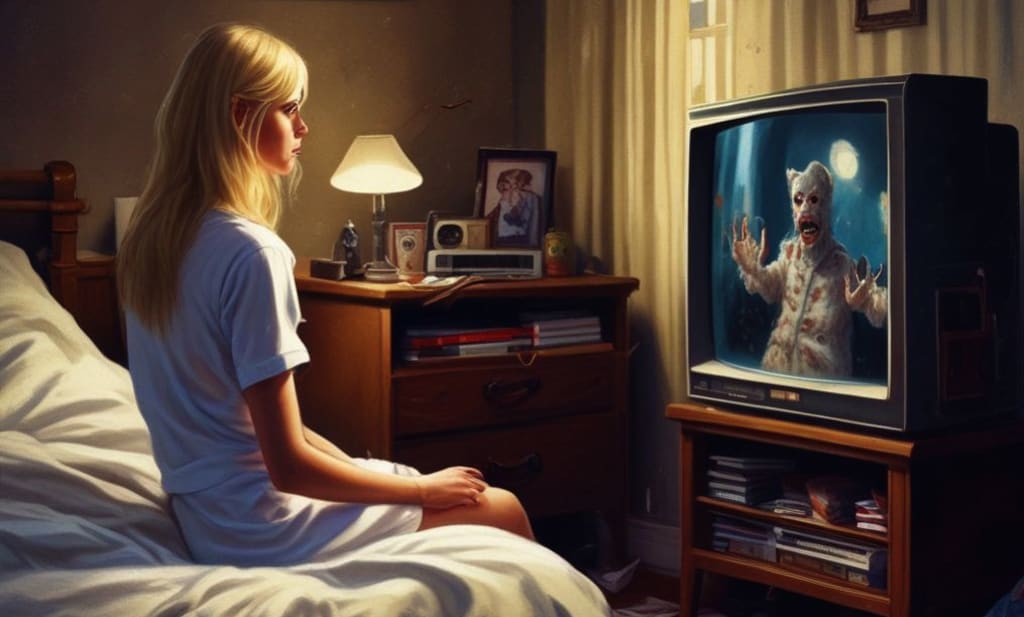
According to these researchers, the consumption of horror is driven by stimulation. Exposing ourselves to terrifying acts, such as stories of demonic possession or alien infestation, can be mentally and physically stimulating. These experiences can evoke both negative emotions, like fear or anxiety, and positive emotions, like excitement or joy. Interestingly, we tend to experience the most positive emotions when something triggers the most negative ones. Horror entertainment also offers a unique experience, like a movies of zombies, aliens, vampires that aren't occur in the real world. Simultaneously, it provides a safe way to explore our curiosity about the darker aspects of humanity through captivating storylines and characters facing the depths of the human condition. Not all tricks are treats The question remains: why do some people find pleasure in horror while others do not? Research suggests that those who enjoy horror have a psychological "protective frame" that falls into three categories. The first category is a safety frame. When watching a horror film or show, we need to feel assured that we are safe and that the evil entity is distant and incapable of harming us. The second category of protective frame involves a sense of detachment. We need to be reminded that the horror we witness is not real—it's simply exceptional acting, special effects, and art direction. Lastly, the protective frame encompasses our sense of control and confidence in managing the dangers we encounter. If we feel capable of controlling and overcoming the perceived danger, we can still derive excitement from a good scare. To fully enjoy the thrill of the spooky, we don't necessarily need all three frames. However, having fewer than all three tends to diminish our interest in the idea. Not surprisingly, some research suggests that individuals with a higher sensation-seeking trait and those who are more adventurous are more likely to enjoy horror. Horror movies have always captivated audiences, and there are several reasons why.
According to horror scholar Mathias Clasen, our love for horror can be traced back to our ancient ancestors' constant exposure to danger in their environments. They had to be constantly vigilant to avoid becoming prey to larger, more deadly animals. These ancestral experiences have left us with a highly responsive threat detection system, even if it operates mostly unconsciously. Horror movies excel at simulating threatening situations, which triggers emotional responses similar to those we would have in real-life threats. Since we don't encounter real-life threats as frequently as our ancient counterparts, watching horror movies allows us to engage our innate threat detection system in a novel way. Not only are horror movies attention-grabbing, but they also provide a safe environment to experience post-apocalyptic scenarios, alien invasions, and the threat of an attacker. In essence, horror movies offer a risk-free opportunity to vicariously experience threats and practice our responses to them.
Moreover, successfully navigating through a horror movie can give us a sense of accomplishment and mastery over the threat we've faced. This newfound confidence can then extend to handling other anxiety-provoking situations in our lives. While scary situations are not a common occurrence in our everyday lives, they still manage to grab our attention. This is where the Excitation Transfer Theory comes into play.
Developed by Dolf Zillmann, a renowned German filmmaker and film studies professor, has made a name for himself in the horror genre. His notable works include "The Devil's Backbone" and "The Cabin in the Woods." Zillmann's horror films captivate audiences with their gripping and suspenseful atmosphere, often incorporating psychological and supernatural elements. In the 1970s, his theory suggests that our enjoyment of horror movies stems from the negative affect created by the film, followed by a positive affect or response when the threat is resolved. This creates a euphoric high. Recent studies have supported the validity of the Excitation Transfer Theory, further reinforcing its relevance. Wisely, feeling in control can act as a psychological safety net, allowing us to enjoy consuming horror movies.





Comments
There are no comments for this story
Be the first to respond and start the conversation.